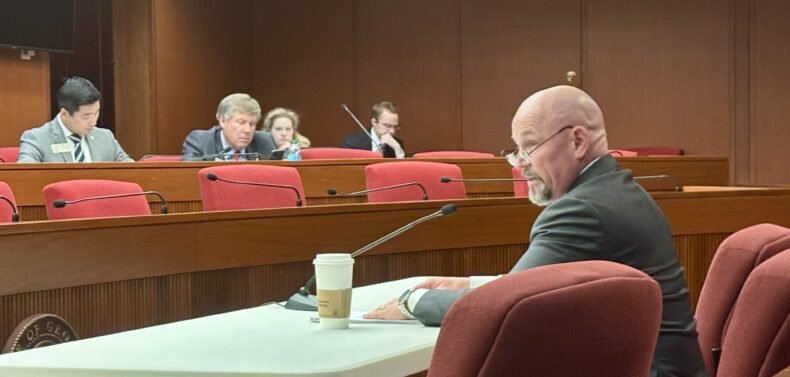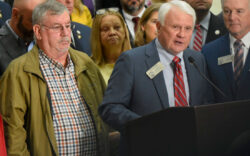The Georgia House of Representatives advanced measures Wednesday that would allow voters to decide whether to legalize sports betting in Georgia.
After an hour-long public hearing Tuesday on a topic that’s been debated in the Georgia Legislature for the past several years, the House Higher Education Committee voted Wednesday in favor of online sports betting legislation in tandem, House Bill 686 and House Resolution 450.
HB 686 provides the framework for how online sports betting would operate in Georgia. HR 450 proposes to place a constitutional amendment on the 2026 ballot asking Georgians whether they wish to legalize online sports gambling.
The two sports betting measures now move on to the gatekeeping House Rules Committee, which will determine which legislation will be brought before the House chamber on Thursday’s pivotal Crossover Day deadline. The constitutional amendment resolution would require two-thirds of the legislature’s support in order to advance.
In past years, the legislature’s supporters of sports betting and other forms of gambling have tried to avoid the need for a supermajority vote to try to win passage by pushing for a standalone bill.
Rep. Marcus Wiedower (R-Watkinsville) sponsored the sports betting legislation, which excludes horse racing, casino gambling, brick-and-mortar stores, kiosks, and horse racing.
Wiedower said he has always tried to be transparent while working on sports gambling measures. His latest proposal is to have the yearly revenue distributed the same way as the state’s educational lottery program, which pays for HOPE college scholarships and pre-K education.
The bill also calls for using revenue to promote responsible gaming and educational programming.
Democratic House Minority Whip Sam Park thanked Wiedower for his hard work on the bill.
“My hope is that we can continue to keep open the lines of communication to ensure that this has the requisite support to pass the House,” Park said.
The bill would provide the Georgia Lottery with a master sports betting license. Other licenses would be awarded to professional sports franchises the Atlanta Braves, Atlanta Hawks, Atlanta Falcons, Atlanta Dream and Atlanta United, as well as the Augusta National and NASCAR’s Atlanta Motor Speedway.
Wiedower said the bill is intended to allow standard betting lines on game scoring outcomes. Proposition bets, like how many touchdowns a player will score, would be allowed for professional sporting events but not collegiate athletics. Any betting on high school athletics would be prohibited.
Over the last several years, various legalized sports gambling measures have been endorsed by bipartisan groups of lawmakers, Atlanta’s major professional sports franchises and the Metro Atlanta Chamber of Commerce.
Nick Fernandez, director of government affairs at the Metro Atlanta Chamber, also said he views sanctioned sports gambling as positive revenue stream for economic development and education.
Sports betting has long been opposed by religious groups like Georgia Baptists and the Georgia Faith and Freedom Coalition.
On Tuesday. Mack Parnell with the Georgia Faith and Freedom Coalition mentioned numerous studies showing problematic outcomes from gambling, bankruptcy, divorce and suicide attempts.
“If the legislation that you’re legalizing has to have mitigation efforts, why would you be endorsing that?” Parnell asked.
Mike Griffin, a public affairs representative for the Georgia Baptist Mission Board, cited moral objections to state-sponsored gambling that also results in greater financial costs from addiction compared to the benefits of additional tax revenue.
“What you’re going to do if this gets legalized, you’ll be putting gasoline on a dumpster fire,” Griffin said.
This article originally appeared at the Georgia Recorder.
Like what you just read? Support Flagpole by making a donation today. Every dollar you give helps fund our ongoing mission to provide Athens with quality, independent journalism.










